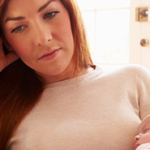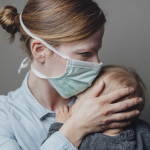In the United States, about one out of every 160 pregnancies ends in stillbirth, defined as a pregnancy loss occurring after 20 weeks’ gestation. Perinatal loss is a traumatic event for women and their families. While we clearly understand the potential for perinatal loss to cause significant emotional consequences, we have relatively little data on the prevalence of anxiety and depressive illness in this population of women. A recent study has examined risk for severe psychiatric illness in women who have experienced a stillbirth.
In this retrospective cohort study, researchers used diagnoses and procedure codes noted in the medical record to identify outcomes in women who had experienced a stillbirth within the Florida State Inpatient and State Emergency Department databases.
The analysis included a total of 8292 women with stillborn singletons and 1,194,758 women with liveborn singletons. The researchers identified Emergency Department encounters and inpatient admission within one year of delivery for psychiatric causes, including suicide attempt, depression, anxiety, posttraumatic stress disorder, psychosis, acute stress reaction, and adjustment disorder. Women who were diagnosed with psychiatric illness or substance use during pregnancy were excluded from the analysis.
Within one year after stillbirth, 4.0% of the women (n=331) had an Emergency Department encounter or inpatient admission for a psychiatric indication, compared to 1.6% of women (n=19,746) after a singleton livebirth.The risk of severe psychiatric morbidity was nearly 2.5 times higher after stillbirth compared to livebirth (adjusted odds ratio, 2.47; 95% CIl, 2.20- 2.77). After stillbirth women also had a higher risk of having an Emergency Department visit or inpatient admission for drug or alcohol use or dependence in the year after delivery livebirth (124 [1.5%] vs 7033 [0.6%]; aOR 2.41; 95% CI 1.99-2.90).
The highest risk for psychiatric illness was within 4 months of stillbirth, although the risk remained high during the 4-12 months after delivery.
Because this study looked only at ED visits and inpatient admissions, it focuses primarily on women with the most severe psychiatric symptoms. Other studies looking at risk for depression using more conventional measures, like the EPDS, suggest that depression is two to four times more common in women who have experienced a stillbirth than women who had given birth to a liveborn infant.
Most guidelines on screening for postpartum psychiatric illness do not identify women who have had a stillbirth as being at increased risk for postpartum illness. While this study clearly indicates that this group of women is at increased risk for postpartum psychiatric illness, they may not be screened or adequately assessed because women who have had a stillbirth may not return for obstetric follow-up and will not be observed in a pediatric setting.
Based on the findings of this study, we recommend that healthcare providers should routinely screen for symptoms of depression and anxiety among women after stillbirth. In addition, couples who have experienced a stillbirth may benefit from the support of others who have had a similar experience. The American Pregnancy Association provides a list or resources for families who have experienced a stillbirth.
Ruta Nonacs, MD PhD
Lewkowitz AK, Rosenbloom JI, Keller M, López JD, Macones GA, Olsen MA, Cahill AG. Association between stillbirth ? 23 weeks gestation and acute psychiatric illness within 1 year of delivery. Am J Obstet Gynecol. 2019 Nov;221(5):491.e1-491.e22.








Leave A Comment